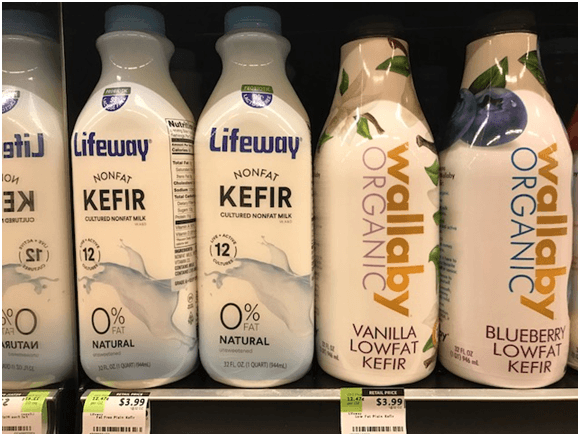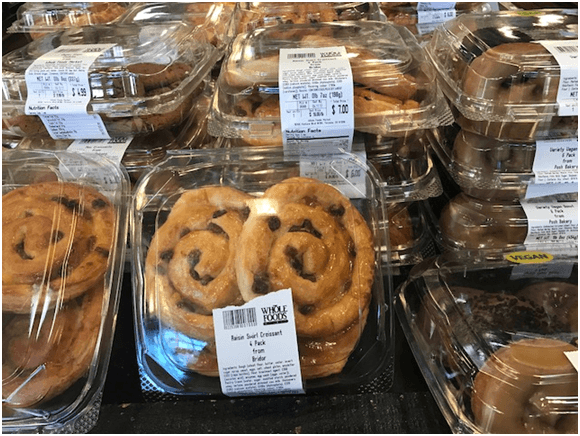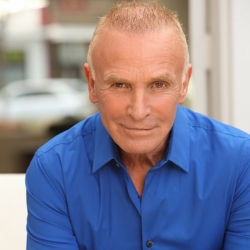We didn’t have anything like Whole FoodsMarket in New York City in the 1990’s, just a bunch of small, dark “health food” stores selling Tigers Milk bars and wheatgrass juice. When I arrived in southern California some fifteen years ago and discovered the city-block size Whole Foods right down the street from me in Woodland Hills, I took it as an omen. I knew right then that moving from New York City to Los Angeles had been the right decision.
That was then.
The first sign of trouble in paradise came when I started noticing the “low-fat” and “no-fat” options crowding outreal whole foods.
Now, don’t get me wrong. I’m not the food police. If people choose to follow low-fat or no-fat diets, that’s their personal prerogative. As a nutritionist, I think low-fat foods are a huge mistake, and the research shows they don’t do any of the things we think they do. But I certainly don’t want to limit anyone’s access to such foods, despite the fact that nothing about them is even remotely “whole.” Remember, by definition, a “whole” food contains everything that was ever in the food. Does milk comes out of the cow without the fat? Removing fat from a whole food like yogurt to make “no-fat yogurt,” is the same thing as removing the bran and germ layers from wheat to make white bread. And if that’s what you want, you have every right to have it, and stores have every right to sell it.
What theydon’thave the right to do is call it a “whole food.”
It was perfectly fine with me if Whole Foods wanted to sell the adulterated products known as “low-fat” and “no fat.” It only became a problem when it was no longer possible to findrealyogurt in the yogurt department. The no-fat and low-fat options — which are, let me remind us, highly processed foods not occurring in nature — were crowding out the real foods. On two occasions, I couldn’t locate one single full-fat — i.e.“whole food” — yogurt or kefir in the entire store.


Then there was the time that Whole Foods decided to rate the health value of their offerings using a system called the ANDI food scores, ANDI standing for Aggregate Nutrient Density Index. Sounds like a cool idea, right?
Not so fast.
The ANDI system was designed byDr. Joel Fuhrman, a rabid vegan who pretty much believes that if you eat a food that comes from an animal, you will drop dead on the spot (OK, I’m exaggerating, but you get the idea). So in Fuhrman’s highly biased system, anything that contains saturated fat gets points deducted, anything that contains cholesterol gets points deducted, and anything that includes pro-inflammatory “vegetable oil” (i.e.industrial seed oils like corn oil and soybean oil) gets extra credit. This is like rating political candidates on an “objective” scale that was designed by the most partisan and extreme politicians in Congress. Asking Joel Fuhrman to “rate” foods is like asking Rand Paul to rate Obamacare, or Nancy Pelosi to evaluate Trump. The point is there’s nothing objective about the ANDI system — it rates vegan foods high and everything else low, and is about as objective about food as the Taliban is about religion.(Dr. Fuhrman responds.)
For me, though, the final nail in the coffin of my Whole Foods romance came when I was buying my favorite curry chicken salad at the prepared foods department, a department where Whole Foods really shines. As she was scooping the salad into the container, the clerk proudly informed me that they were no longer using regular mayonnaise, but had switched to “Veganaisse,” some vegan mayo crap made of soy milk and canola oil.
OK, listen up, Whole Foods. I don’twantyour vegan mayo. More importantly, I don’t want to be deprived of the opportunity to eat whole natural foods that I — and an increasing number of my colleagues in medicine and nutrition — think are perfectly healthy (such as real mayonnaise or full-fat yogurt) just because of the biased dogma of your nutrition guru.
Clearly, whoever makes decisions like the one to substitute “Veganaise” for real food must be unaware that there has been a vocal and outspoken movement among medical and nutrition professionals questioning the whole low-fat madness of the last few decades. A large number of published studies in the last seven years have absolved saturated fat of a causative role in heart disease, and no one — including the Dietary Guidelines Advisory Committee — still thinks cholesterol in food matters a whit.
Obviously Whole Foods doesn’t agree.
And then, of course, there’s this.

And let’s not even talk about the self-righteous claims that Whole Foods makes about never selling anything with high-fructose corn syrup, while meanwhile crowding the aisles with all sorts of products sweetened with agave nectar, which has far more fructose than even high-fructose corn syrup despite its undeserved reputation as a “healthy” sweetener.
So, sadly, my love affair with Whole Foods Market is over.
On reflection, I don’t think I’d be as angry and disappointed if Whole Foods were just another store. Where I live, there are many grocery stores — like Ralph’s, for example — that offer a wide variety of junk foods for those who want them alongside a terrific assortment of first-rate organic produce and other healthy fare. But they don’t self-righteously proclaim that they sell only “whole” foods. They are what they are — a supermarket that offers junk AND good stuff.
That’s also what Whole Foods is, a supermarket that offers both good stuff and complete junk, mostly at inflated prices.
I’d like them a lot more if they’d change their name and stop pretending that they’re something they’re not.
Jonny Bowden, “the Nutrition Myth Buster” is a board-certified nutritionist and the
 best-selling author of 15 books including The Great Cholesterol Myth, Living Low Carb, the 150 Healthiest Foods On Earth and Smart Fat. To learn more about healthy living, motivation and nutrition, visit jonnybowden.com.
best-selling author of 15 books including The Great Cholesterol Myth, Living Low Carb, the 150 Healthiest Foods On Earth and Smart Fat. To learn more about healthy living, motivation and nutrition, visit jonnybowden.com. Note: The statements presented in this column should not be considered medical advice or a way to diagnose or treat any disease or illness. Dietary supplements do not treat, cure or prevent any disease. Always seek the advice of a medical professional before altering your daily dietary regimen. The opinions presented here are those of the writer.
Posted on WholeFoods Magazine Online, 9/25/17










